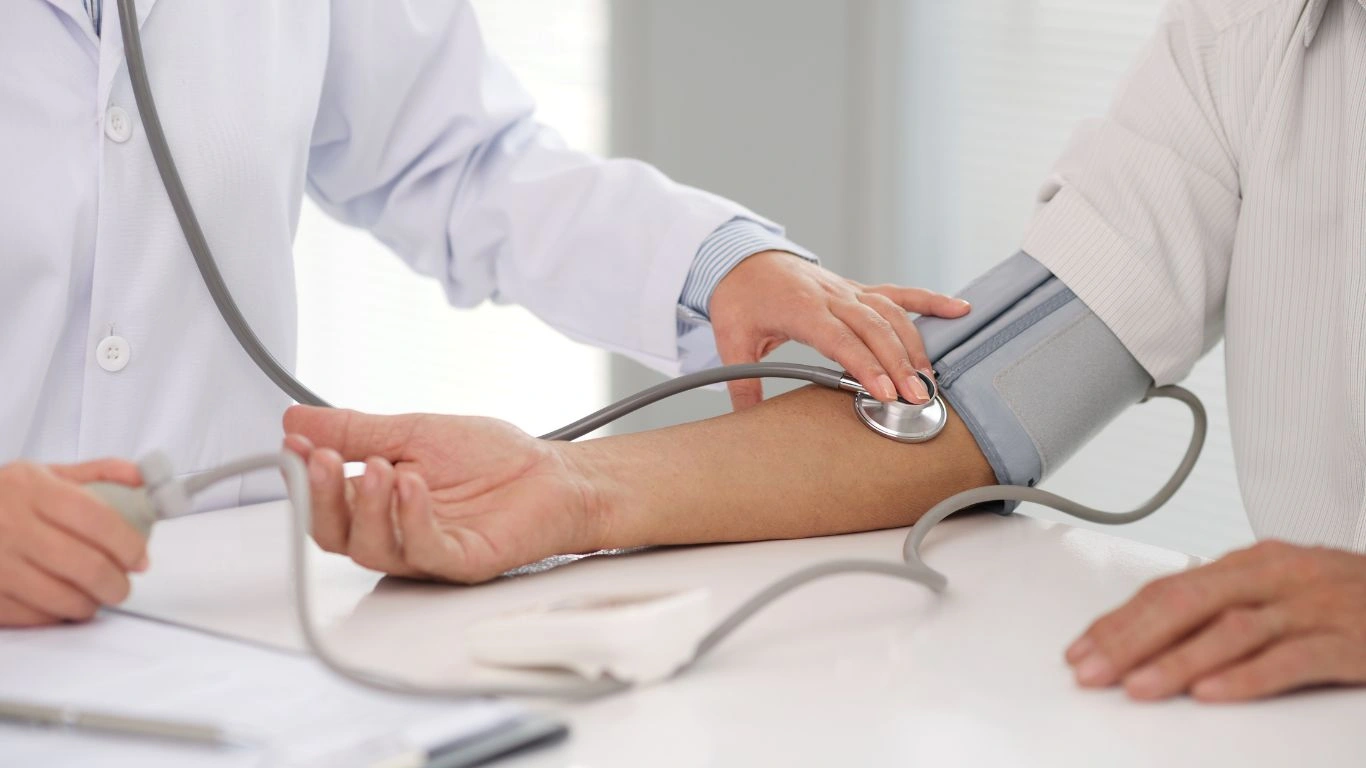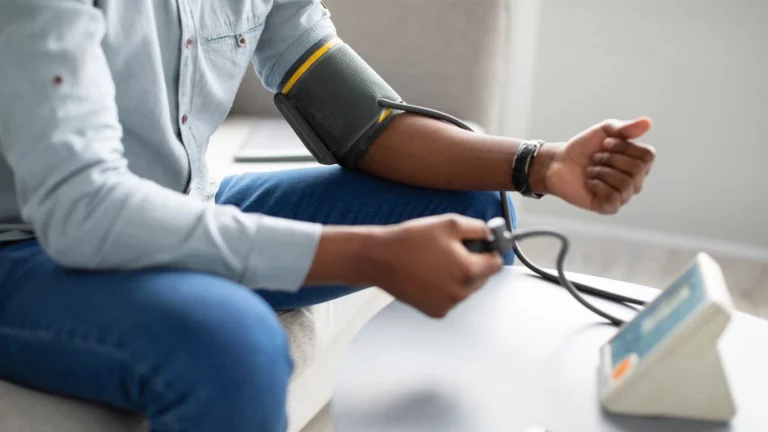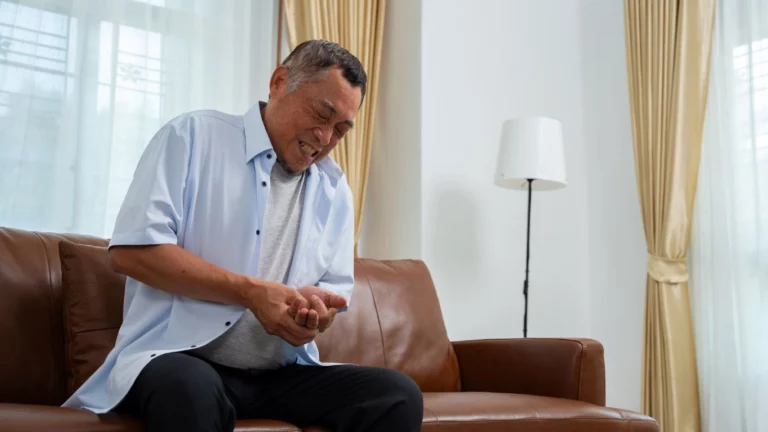High Blood Pressure and Stress: Breaking the Vicious Cycle Naturally
High blood pressure and stress: a vicious cycle. If you’ve ever experienced the pressure of a busy workday, a stressful family situation, or just the daily grind of life, you might have noticed something all too familiar: your heart rate picking up, your breathing getting a bit more shallow, and that tight feeling in your chest. It’s no surprise, right? Stress can wreak havoc on your body, and one of the most common—and dangerous—effects is an increase in blood pressure. But what many people don’t realize is that stress and high blood pressure can go hand in hand, creating a vicious cycle that’s tough to break. Let me tell you a bit about why this happens, and how you can take steps to break free from it.
Understanding the Connection Between Stress and High Blood Pressure
Let’s start by looking at how stress affects your blood pressure. Stress, whether it’s from a hectic job, family concerns, or something else, triggers the body’s “fight or flight” response. Your heart rate increases, your blood vessels constrict, and your body produces hormones like adrenaline and cortisol. These changes are great in the short term—if you’re facing an immediate threat. Your body is geared up for action. But what happens when stress becomes chronic? Your body stays in this heightened state for extended periods, which can lead to long-term issues with your heart and blood vessels. Over time, this puts extra strain on your cardiovascular system, which can elevate your blood pressure.

The Physical Effects of Chronic Stress
When stress becomes chronic, it can have a lasting impact on your physical health. One of the first things you might notice is a consistently higher blood pressure reading. That’s because your body is always in “high alert” mode, which makes your heart pump harder and faster than it should. Increased blood pressure is one of the main risks of living with constant stress, and this is something I’ve seen time and time again with my patients. It becomes a compounding issue: Stress raises your blood pressure, and then high blood pressure can lead to more stress, creating a cycle that feels nearly impossible to escape.
Stress as a Trigger for Blood Pressure Spikes
As someone who’s worked in this field for years, I’ve heard countless stories from patients about how certain stressful situations have led to sudden, sharp increases in their blood pressure. You know the drill: you’re late for a meeting, you’ve got a deadline looming, or you’re dealing with a major life event like moving or losing a loved one. In moments like these, stress can cause a rapid increase in blood pressure that may not be felt immediately but can have lasting effects on your health.
- Workplace stress: Deadlines, long hours, or conflict with colleagues can raise your blood pressure.
- Emotional stress: Divorce, loss of a loved one, or financial troubles can have a similar impact.
- Physical stress: Illness, lack of sleep, or even poor diet can trigger stress responses in the body.
All of these stressors can trigger a “fight or flight” response, causing a temporary increase in blood pressure. The real problem occurs when these spikes are frequent or sustained over time. That’s when chronic hypertension can start to set in, which increases your risk for heart disease, stroke, and other serious conditions.
How Stress Management Can Help Control Blood Pressure
So, what can we do about it? One of the most important steps in managing high blood pressure caused by stress is recognizing the role that stress management plays in overall heart health. I always encourage my patients to take time for themselves—to step away from the stress of their daily routines and focus on relaxation techniques that help to lower their blood pressure.
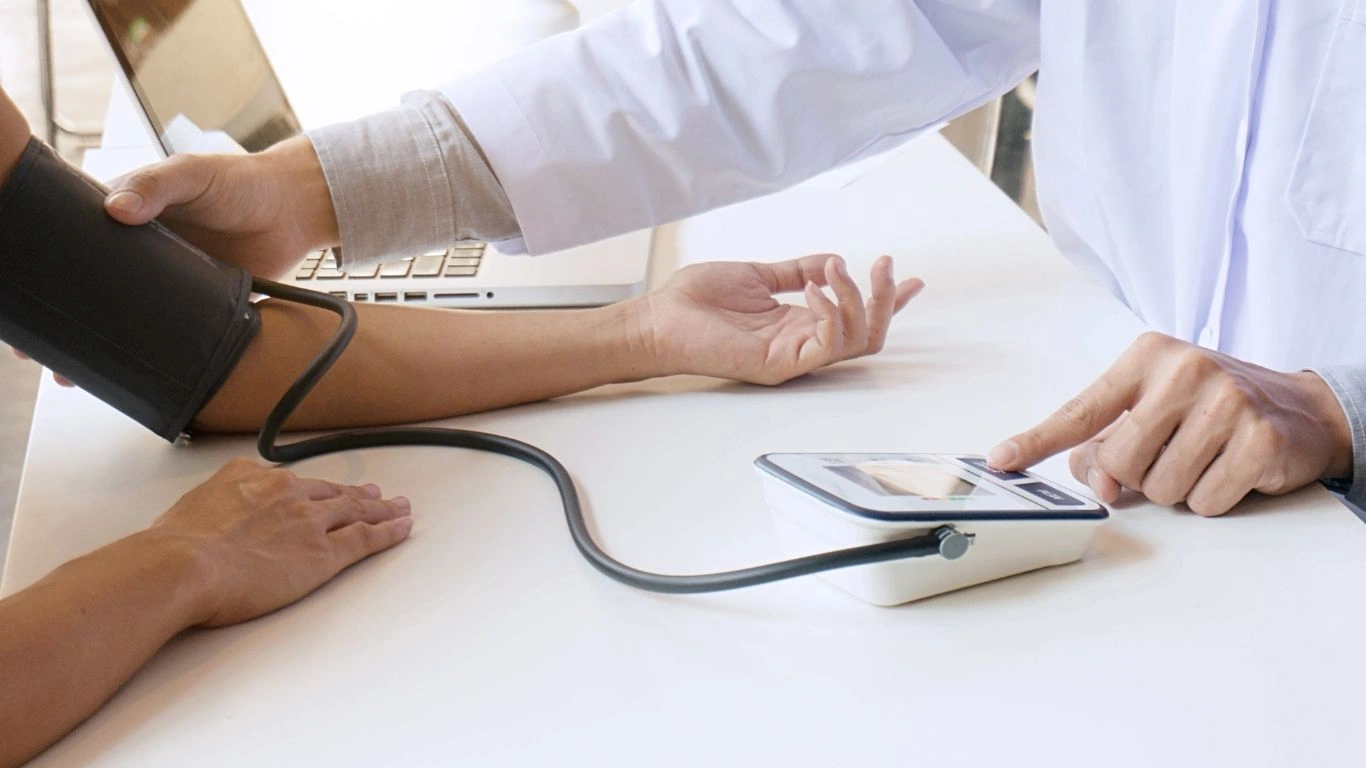
Things like mindfulness, deep breathing, yoga, and even taking short walks outside can be incredibly effective in managing stress and controlling blood pressure. It’s something I always emphasize because, after all, you can’t truly address high blood pressure without taking a holistic approach that considers both the physical and emotional factors that contribute to it.
The Vicious Cycle: Stress Feeds High Blood Pressure, and High Blood Pressure Feeds Stress
It’s easy to see how stress and high blood pressure create a vicious cycle. When you’re under stress, your body responds by raising your blood pressure. In turn, high blood pressure can create stress on its own—worrying about the potential health consequences, feeling fatigued or anxious, and dealing with the physical symptoms that come with it.
- Stress raises your blood pressure by triggering a fight or flight response in the body.
- High blood pressure increases stress levels as you worry about your health.
- This creates a continuous cycle that can be hard to break without proper intervention.
As someone who specializes in hypertension, I’ve seen firsthand how patients can get caught in this loop. That’s why it’s so important to address both the physical and emotional aspects of health when managing blood pressure. The good news is that once you start to manage your stress and address the root causes, you can lower your blood pressure and break free from the cycle.
Breaking the Cycle: It’s All About Balance
Finding a balance in life is key to breaking the stress-high blood pressure cycle. It’s not about completely eliminating stress (because let’s face it—life is stressful), but it’s about learning how to manage it effectively. When you can do that, you’ll find that your blood pressure improves, and your stress levels become much more manageable.
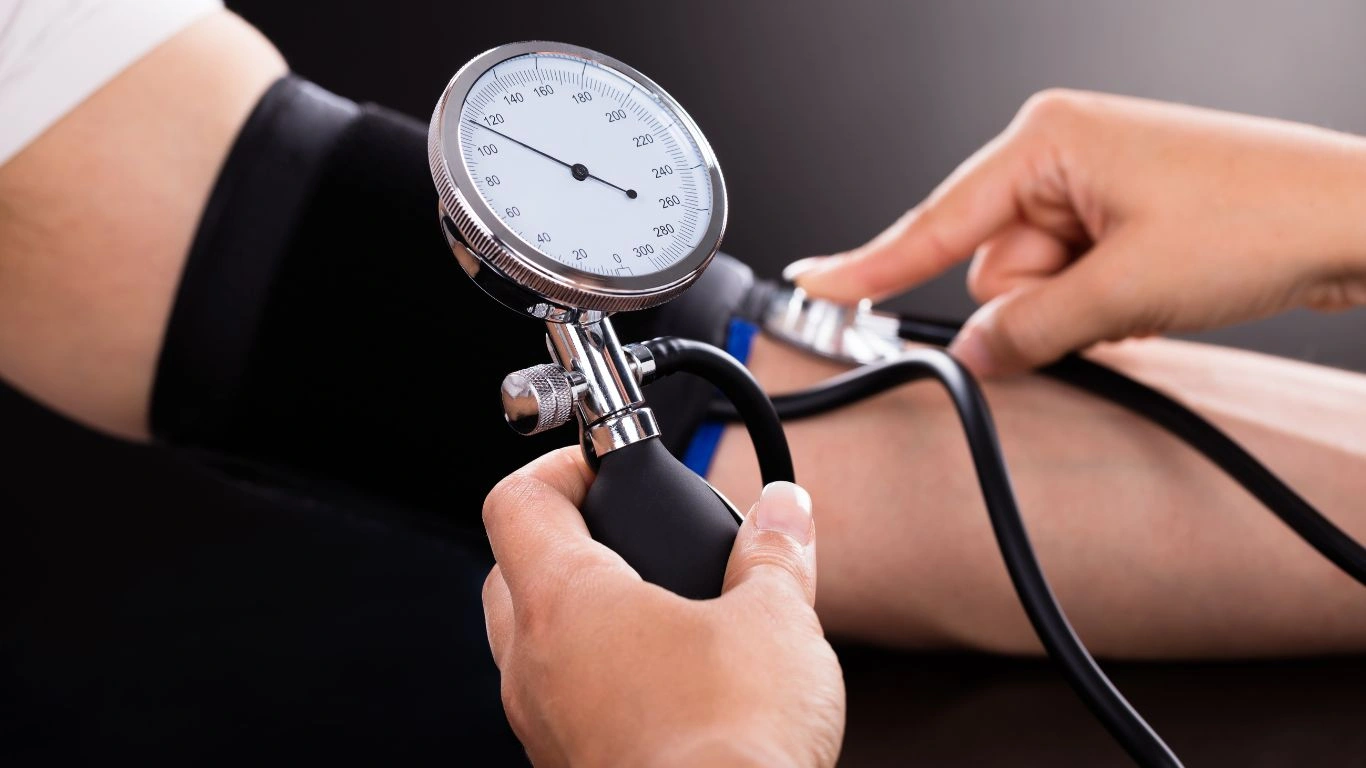
In the next section, we’ll dive deeper into how lifestyle changes, diet, and exercise can play a significant role in reducing both stress and high blood pressure. Stay tuned for more tips and strategies on how to manage stress and keep your heart healthy!
How Lifestyle Changes Can Help Break the Cycle of High Blood Pressure and Stress
Now that we’ve talked about how stress and high blood pressure can feed off each other, let’s dive into some practical ways you can break this cycle. As someone who works with patients day in and day out, I can tell you that lifestyle changes are often the key to managing both stress and high blood pressure. But it’s not just about reducing stress—it’s about creating a healthier, more balanced lifestyle that tackles both physical and emotional health at the same time. Let’s explore some of the most effective strategies I recommend to my patients.

The Power of Physical Activity
If there’s one thing I’ve seen over and over again, it’s how transformative physical activity can be for both stress management and blood pressure control. Regular exercise can help lower your blood pressure by improving blood flow, strengthening your heart, and reducing the tension that stress often causes in your muscles. But it’s not just about getting in your steps or hitting the gym—it’s about finding something you enjoy. When you enjoy the exercise, you’re more likely to stick with it.
For example, I have a patient who absolutely hates running, but she loves yoga. After starting a regular yoga practice, her blood pressure dropped significantly, and she also noticed a huge improvement in how she managed stress. Another patient of mine found that walking with his dog every morning became a grounding routine that not only got him moving but also allowed him to clear his mind before the day started. The key is to find an activity that fits into your lifestyle and something you genuinely enjoy. Even a 30-minute walk or a couple of sessions of yoga each week can make a noticeable difference.
Diet and Nutrition: Fueling Your Body to Combat Stress
When it comes to managing both stress and high blood pressure, what you eat is just as important as how much you move. A healthy, balanced diet can help you lower your blood pressure and keep your stress levels in check. You’ve probably heard of the DASH diet (Dietary Approaches to Stop Hypertension)—it’s been proven time and time again to help lower blood pressure. But more than just following a diet plan, it’s about making mindful choices in your day-to-day meals.
Foods to Lower Blood Pressure
Incorporating foods that help lower blood pressure can be a game-changer. Foods rich in potassium, magnesium, and fiber—like leafy greens, bananas, and whole grains—are great options. Eating more fruits and vegetables is one of the easiest ways to support your heart and manage stress. I always encourage my patients to aim for a colorful plate. The more variety, the better.
- Leafy greens: Spinach, kale, and other leafy greens are packed with potassium, which helps balance out the negative effects of salt on your blood pressure.
- Bananas: A great source of potassium, bananas help reduce blood pressure by keeping fluid balance in check.
- Whole grains: Brown rice, oats, and quinoa provide fiber that supports heart health.
Another powerful food group for managing blood pressure is omega-3 rich foods, like fatty fish (think salmon, mackerel, and sardines). Omega-3s are great for reducing inflammation, lowering blood pressure, and even improving your mood. My patients who include more of these foods in their diet often report feeling less stressed and more energized overall.

Avoiding the Stress-Boosting Foods
On the flip side, certain foods can exacerbate both stress and high blood pressure. These include foods that are high in sodium, added sugars, and unhealthy fats. I can’t tell you how many times I’ve seen patients who are constantly under stress reach for sugary snacks or processed foods to help them “feel better” in the moment. While that instant gratification is nice, it doesn’t help in the long run. In fact, these types of foods can make stress and blood pressure worse.
- Processed foods: Foods that are high in sodium and unhealthy fats can raise your blood pressure and contribute to stress.
- Added sugars: Excess sugar intake can cause inflammation, which contributes to both stress and high blood pressure.
- Caffeine: While caffeine can give you a temporary boost, it can also spike your blood pressure and increase anxiety levels.
If you’re looking to manage your blood pressure and stress, cutting back on these foods is crucial. I know it can be tough, especially when you’re stressed and craving comfort food, but remember: small changes over time can make a big difference!
The Role of Sleep in Stress and Blood Pressure Control
As someone who’s spent years working with individuals dealing with high blood pressure, I can tell you that one of the most underrated factors in managing stress is sleep. I know, I know—we all live busy lives, and sleep can sometimes be the first thing we sacrifice when we’re stressed or trying to meet deadlines. But getting enough quality sleep is absolutely essential for keeping both your stress and blood pressure in check.
Why Sleep Matters
When you’re sleep-deprived, your body is more likely to produce the stress hormones cortisol and adrenaline. This leads to higher blood pressure and a greater sense of stress. On top of that, a lack of sleep can make it harder to manage your emotions, leading to more stress, and you can see how the cycle continues. That’s why getting a good night’s sleep is one of the best ways to manage your stress and lower your blood pressure.
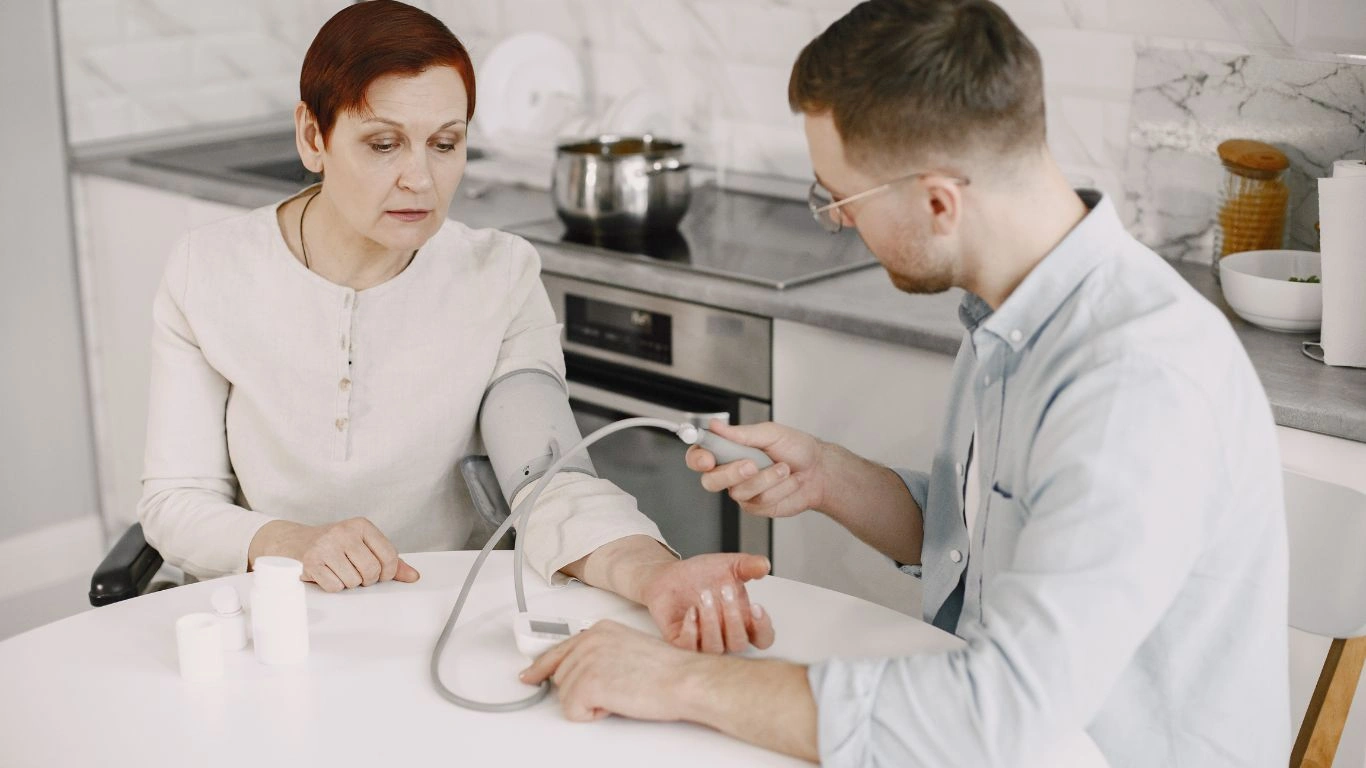
Tips for Better Sleep
So, how can you get better sleep? It’s all about creating a calming bedtime routine and sticking to a consistent sleep schedule. Some of my patients have found that reducing screen time before bed, practicing relaxation techniques, or even reading a book helps them unwind. I also recommend trying to go to bed and wake up at the same time each day to regulate your body’s internal clock. If you’re struggling with sleep issues, don’t hesitate to talk to your doctor—there are solutions that can make a huge difference.
Incorporating these lifestyle changes—whether it’s through regular exercise, a heart-healthy diet, or prioritizing sleep—can help break the vicious cycle of high blood pressure and stress. The key is consistency. Small, gradual changes will lead to lasting results, and I promise that with patience, you can regain control of both your stress levels and your blood pressure.
Mindfulness and Meditation: A Powerful Tool for Stress Reduction
If you’ve been following along, you know that stress and high blood pressure often create a feedback loop that’s hard to break. The good news? There are tools available that can help you disrupt that cycle—and one of the most powerful tools I recommend is mindfulness and meditation. These practices might sound simple, but don’t be fooled: they have profound benefits for both the mind and body.

What is Mindfulness and Why Does It Help?
Mindfulness is the practice of being fully present in the moment, paying attention to your thoughts, feelings, and physical sensations without judgment. It sounds easy enough, but for many of us, it’s tough to stop the constant flow of thoughts and worries that contribute to stress. Meditation, on the other hand, is a structured way to practice mindfulness. Together, these two practices can help you calm your mind, reduce stress, and lower your blood pressure.
Over the years, I’ve seen firsthand how transformative mindfulness and meditation can be for my patients. One of my patients, Mark, had struggled with high blood pressure for years, and despite lifestyle changes, he wasn’t seeing the results he’d hoped for. After integrating daily mindfulness practices into his routine, his stress levels decreased significantly, and within a few months, his blood pressure dropped to a healthier range. It wasn’t a quick fix, but the consistency of his practice made a noticeable difference.
How Meditation Helps Lower Blood Pressure
Studies have shown that meditation can actually reduce blood pressure by promoting relaxation, lowering stress hormones like cortisol, and helping to regulate the nervous system. Regular practice of meditation can help activate the parasympathetic nervous system, which is responsible for the “rest and digest” response. This is the opposite of the “fight or flight” response triggered by stress. By switching on the parasympathetic system, meditation helps calm the body, slow the heart rate, and lower blood pressure.
Even just a few minutes a day can be incredibly beneficial. You don’t need to sit for hours on end—short bursts of meditation throughout the day can help maintain a sense of calm and focus. Plus, it’s a fantastic way to reset when life’s stressors start to feel overwhelming.
Therapy and Support Systems: Don’t Go It Alone
When it comes to managing stress and blood pressure, one of the most important things to remember is that you don’t have to do it alone. It’s easy to get stuck in your own head and think that you should be able to manage everything by yourself. But in my experience, seeking support from a therapist or counselor can be incredibly valuable. Whether it’s stress-related therapy or counseling for managing chronic conditions, the benefits of having a support system cannot be overstated.

The Benefits of Therapy
Therapy offers a safe space to talk through the challenges you’re facing, whether they’re emotional, psychological, or physical. One of the most common types of therapy used to reduce stress is cognitive-behavioral therapy (CBT), which helps you identify and change negative thought patterns that contribute to anxiety and stress. CBT has been shown to be especially effective in helping individuals manage both stress and high blood pressure.
As someone who’s worked with patients for years, I’ve seen how talking to a professional can change lives. Therapy allows you to build coping mechanisms that can reduce the emotional toll of high blood pressure, allowing you to feel more in control of your health. Many patients report feeling more empowered and less overwhelmed once they’ve started therapy.
Medication: When It’s Time to Consider It
While lifestyle changes are crucial, sometimes managing high blood pressure also requires medical intervention. I always tell my patients that medication is not a one-size-fits-all approach—it should be part of a comprehensive treatment plan that includes stress management, exercise, and a healthy diet. But there are times when medication is necessary to help lower blood pressure to a safe level.
Common Medications for High Blood Pressure
There are several classes of medications that doctors commonly prescribe to manage high blood pressure. Some of the most common include:
- ACE inhibitors: These help relax blood vessels by blocking a hormone that narrows them.
- Beta-blockers: These medications reduce heart rate and the force of heart contractions, which can lower blood pressure.
- Diuretics: Also known as water pills, diuretics help your body get rid of excess sodium and fluid, which can lower blood pressure.
- Calcium channel blockers: These help relax the blood vessels and reduce heart rate.
While medications can be highly effective in controlling blood pressure, they should always be used under the guidance of a healthcare provider. It’s important to follow your doctor’s recommendations, and if you experience any side effects, be sure to discuss them with your healthcare team.
Prevention: How to Keep Stress and High Blood Pressure at Bay
As we wrap up, it’s important to remember that the best way to deal with high blood pressure and stress is to prevent it from becoming a chronic issue in the first place. Here are some practical steps you can take to keep your blood pressure and stress levels in check:
- Prioritize regular physical activity: Aim for at least 30 minutes of moderate exercise most days of the week.
- Eat a heart-healthy diet: Focus on whole foods, including plenty of fruits, vegetables, and lean proteins.
- Get enough sleep: Aim for 7-9 hours of quality sleep each night to support your body’s natural rhythms.
- Practice mindfulness and meditation: Incorporating just a few minutes a day can have a profound impact on your stress levels.
- Seek professional support: Whether it’s therapy or counseling, don’t hesitate to reach out when you need it.
By combining lifestyle changes, stress management techniques, and, when necessary, medical intervention, you can take control of your health and break the vicious cycle of high blood pressure and stress. Remember, this is a journey, and every small step you take brings you closer to a healthier, more balanced life.
References
For more information on managing high blood pressure and stress, check out these trusted resources:
- American Heart Association: High Blood Pressure
- Mayo Clinic: High Blood Pressure Treatment
- National Heart, Lung, and Blood Institute: High Blood Pressure
Disclaimer: The information provided in this article is for educational purposes only and should not be used as a substitute for professional medical advice. Always consult with your healthcare provider before making any changes to your diet, exercise routine, or medication regimen.

Dr. Gwenna Aazee is a board-certified Internal Medicine Physician with a special focus on hypertension management, chronic disease prevention, and patient education. With years of experience in both clinical practice and medical writing, she’s passionate about turning evidence-based medicine into accessible, actionable advice. Through her work at Healthusias.com, Dr. Aazee empowers readers to take charge of their health with confidence and clarity. Off the clock, she enjoys deep dives into nutrition research, long walks with her rescue pup, and simplifying medical jargon one article at a time.

